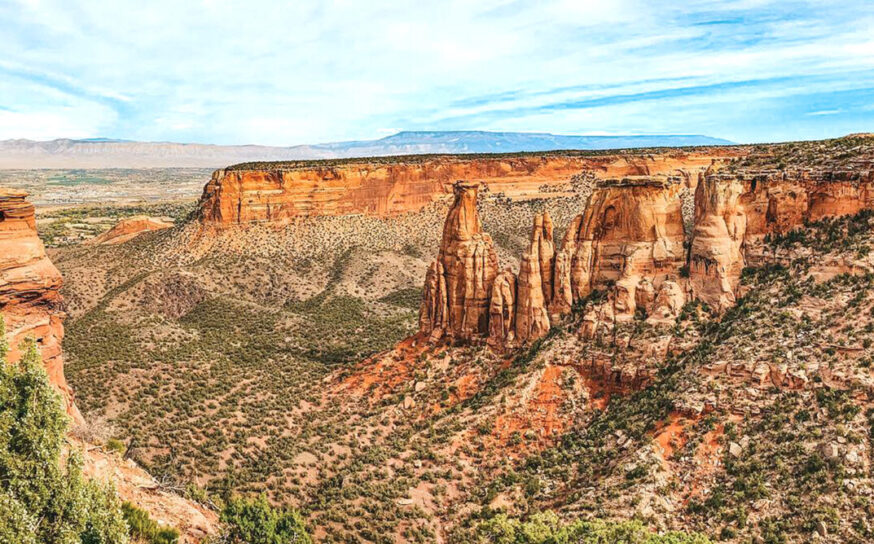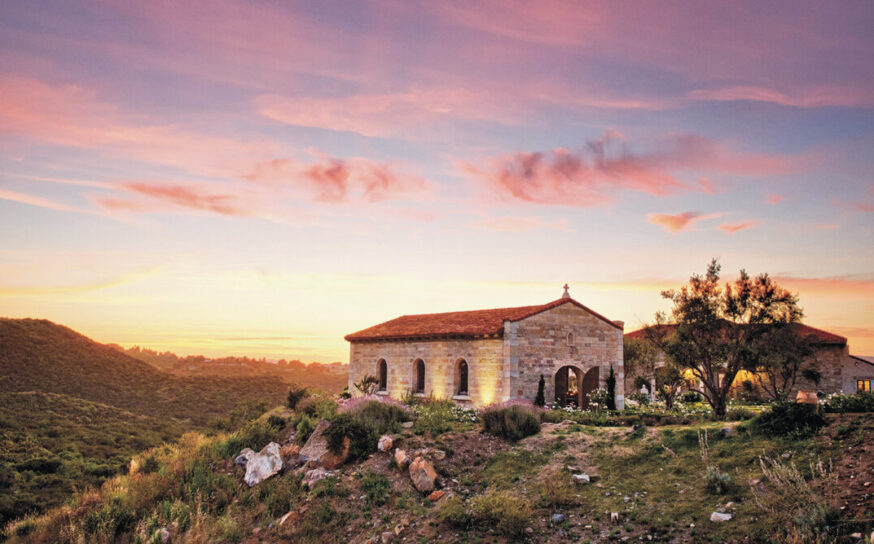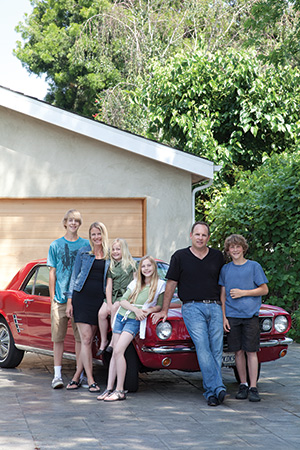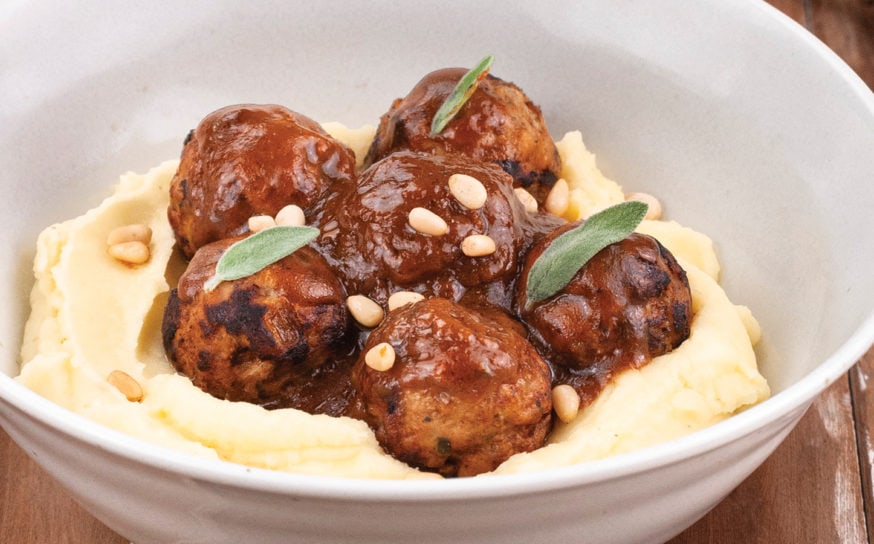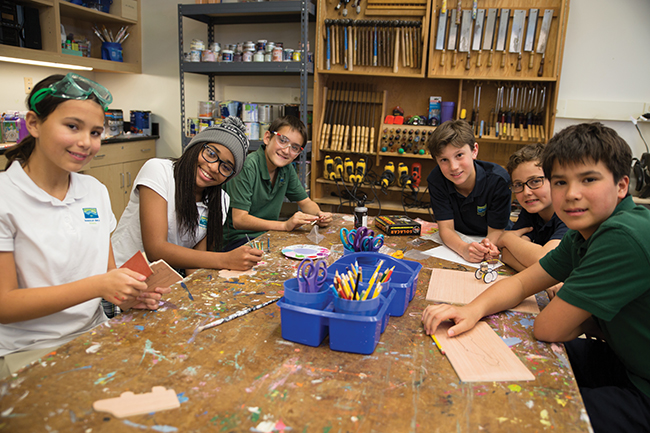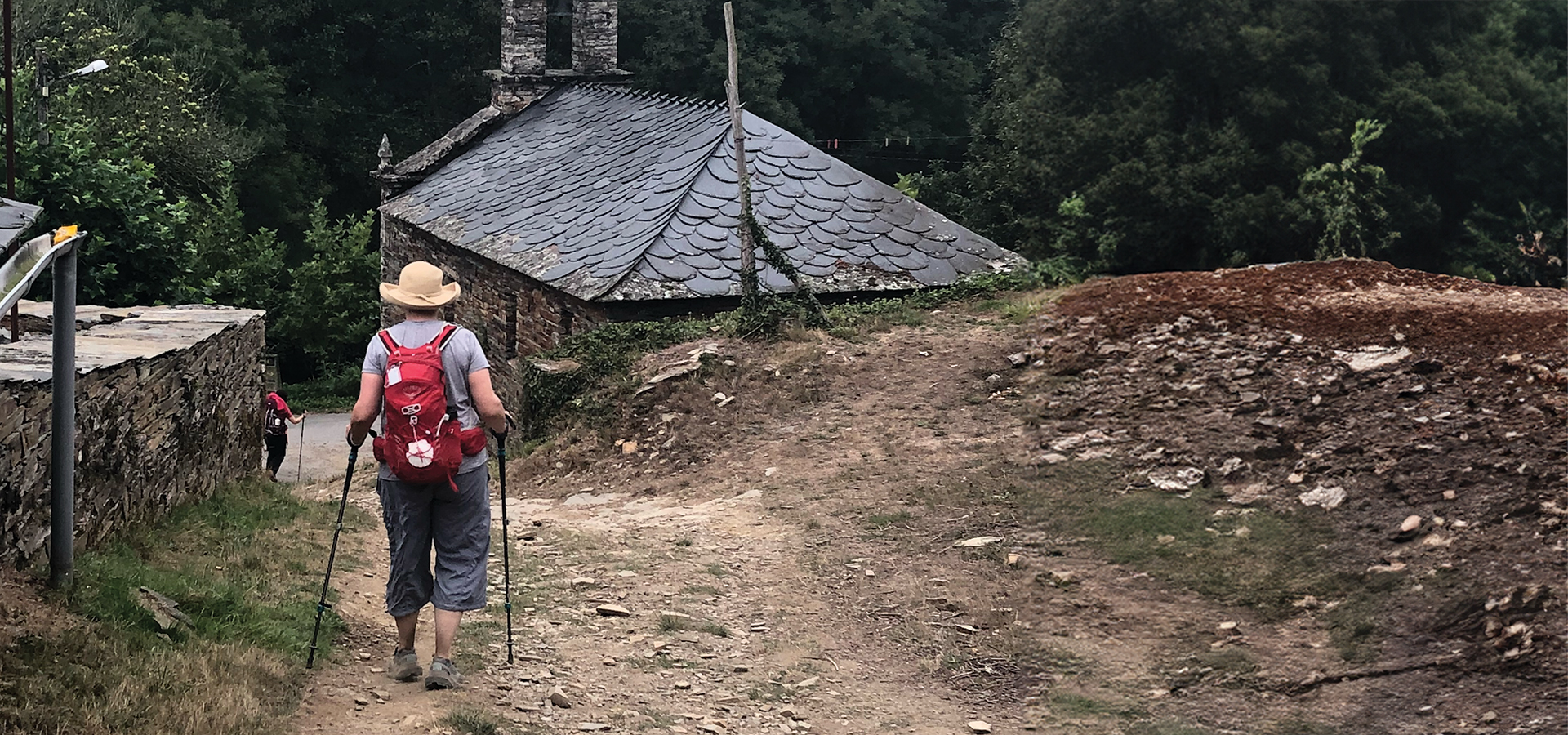
Walking the Historic Camino De Santiago in Spain Is a Rigorous Physical Adventure That Can Have Spiritual Rewards
Spanish pilgrimage.
-
CategoryTravel
-
Written byMaira Suro
 Some milestones in life push you to get out of your comfort zone. My girlfriend’s 60th birthday qualified as such. And being two adventurous types, we headed to northern Spain to walk the fabled route known as El Camino de Santiago.
Some milestones in life push you to get out of your comfort zone. My girlfriend’s 60th birthday qualified as such. And being two adventurous types, we headed to northern Spain to walk the fabled route known as El Camino de Santiago.
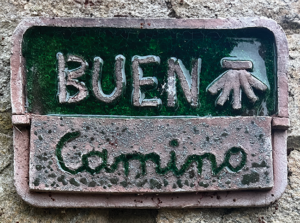 The ancient pilgrimage trail leads to the tomb of St. James. James, also known as James the Great, was one of Jesus’ 12 disciples. He spent time in the north of Spain preaching the gospel, and upon his return to Judea a few years later was beheaded. Legend has it his remains were put on a boat headed for Spain, but it crashed along the shoreline. Years later, a shepherd was guided by divine light to the remains of the apostle, and in 820 A.D., King Alfonso II decreed St. James the patron saint of Galicia, ordering that a cathedral be built in his honor.
The ancient pilgrimage trail leads to the tomb of St. James. James, also known as James the Great, was one of Jesus’ 12 disciples. He spent time in the north of Spain preaching the gospel, and upon his return to Judea a few years later was beheaded. Legend has it his remains were put on a boat headed for Spain, but it crashed along the shoreline. Years later, a shepherd was guided by divine light to the remains of the apostle, and in 820 A.D., King Alfonso II decreed St. James the patron saint of Galicia, ordering that a cathedral be built in his honor.
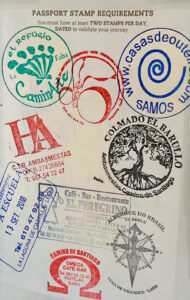
Walkers are given “passports’’ and told to collect two stamps daily from cafes and restaurants to track their progress. To receive a certificate of completion, pilgrims must walk a minimum of 62 miles
Today, more than 300,000 people walk the route each year. Known as “pilgrims,” they have their own personal reasons for walking the Camino, be it spiritual, a bucket-list item or simply taking a break from routine life.
Through The Ashram in Calabasas, we committed to an itinerary that included all meals, hotels, daily yoga classes and massages. The entire route spans 491 miles starting in France and crossing over the Pyrenees into Spain. We opted to walk a portion of it: 120 miles in seven days.
My pilgrimage started with a 20-hour journey from LA to Santiago, during which I hushed doubts about my ability to meet the demanding daily walks. Instead, I tried to focus on my fit body and mental fortitude.
Upon arrival in Santiago we met our group, mostly Americans between the ages of 40 and 60, and were driven to Trabadelo, a small town two and a half hours away. During the welcome dinner we learned valuable tips: Vaseline and dry socks are your feet’s best friend, and blisters, your worst enemy. The wake-up call the next morning was at 6 a.m. We were on the trail by 8 a.m.
Each day was different. Day 1 was an aggressive 14-mile climb through the mountain village of O Cebreiro. Day 2 was a downhill 16-mile trek through fog toward the town of Samos. We walked through beautiful countryside past curious cows and endless rows of corn. Day 3 pushed us across 17 miles to Sarria, the second biggest town in the province of Galicia, where we visited monasteries and enjoyed arroz con leche (rice pudding), Galician beer and Albariño wine. These last two were a much-needed distraction from my achy back, which by the end of day 3 was wrenching.
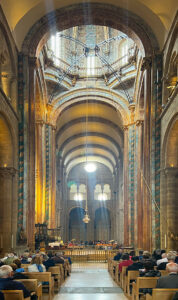
The Cathedral of Santiago de Compostela
The nightly inns were a welcome sight at the end of the day. Employees greeted us with hot tea and restorative massages. The dinners were lively with conversation as we rotated seats in an effort to get to know each other. Whether it was the woman in need of a respite from caring for her sickly husband, or the couple making time for each other after 35 years of marriage, a common theme emerged—we all felt a strong connection to history. On several nights we lifted our glasses of orujo (Galicia’s answer to grappa) to toast the Camino and those who came before us.
Arriving at Santiago’s main plaza was not what I expected. The throngs of tourists were overwhelming as we hustled into the cathedral along with a thousand other worshippers for noon mass. Sitting in the pew, I found myself taking in the familiar scent of incense and the beauty of the ornate altars, and soon this lapsed Catholic found herself reciting the prayers of her youth.
Then something unexpected happened. I realized that the most important part of the journey had started at my own doorstep: my willingness to embark on this experience. The quiet reflection on the trail, the laughter shared with my girlfriend, and the feeling of accomplishment summiting hilltops made me think of the Emerson quote, “It’s not the destination; it’s the journey.” Never did anything ring more true.





